The Ultimate Guide to Plant-Based Cleaning Solutions
Chosen theme: The Ultimate Guide to Plant-Based Cleaning Solutions. Step into a fresher, lighter way to clean—powered by plants, backed by science, and inspired by everyday stories. We’ll show you how to replace harsh chemicals with effective, earth-kind alternatives that make your home feel naturally clean. Subscribe and join our community to swap recipes, share results, and celebrate every bright, citrus-scented victory.
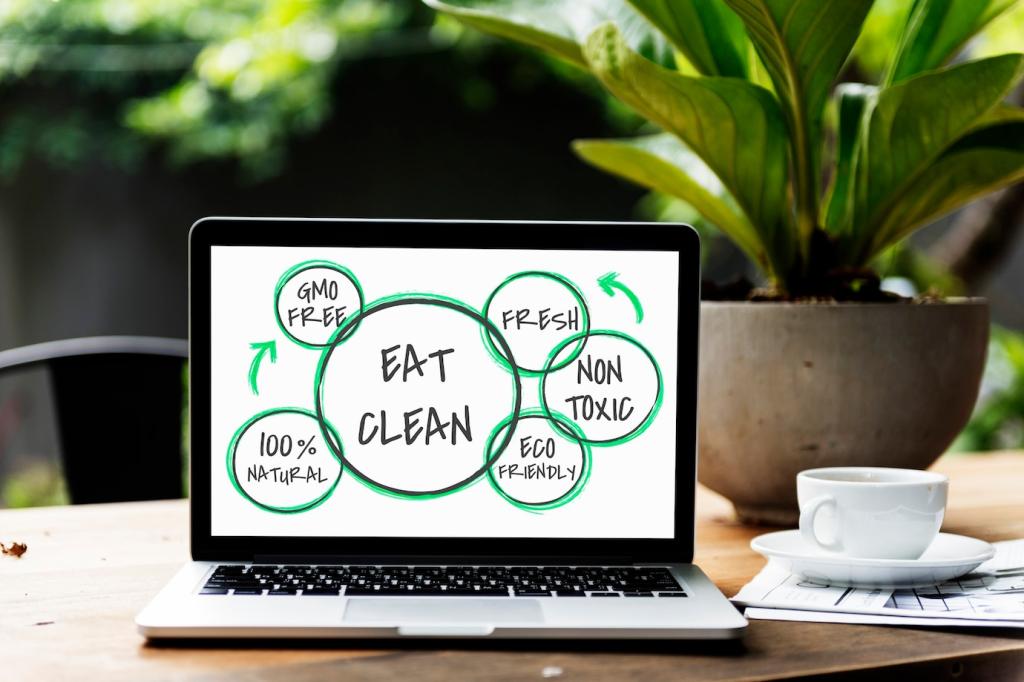
Why Plant-Based Cleaning Works
The Science Behind Botanical Surfactants
Plant-based surfactants, often derived from coconut, corn, or sugar, reduce surface tension so water can lift oils and soils. Their biodegradable structure means fewer persistent residues, while balanced pH and mildness protect surfaces and hands during frequent, everyday cleaning.
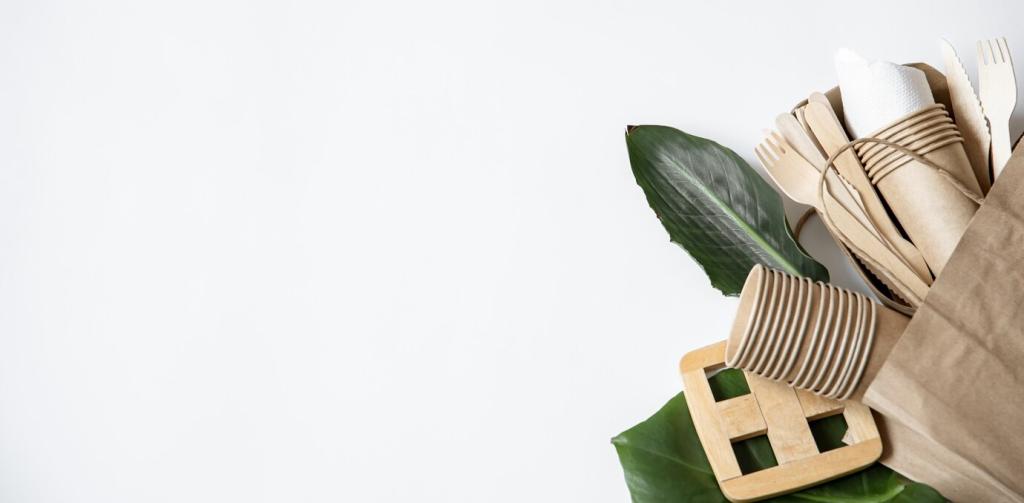
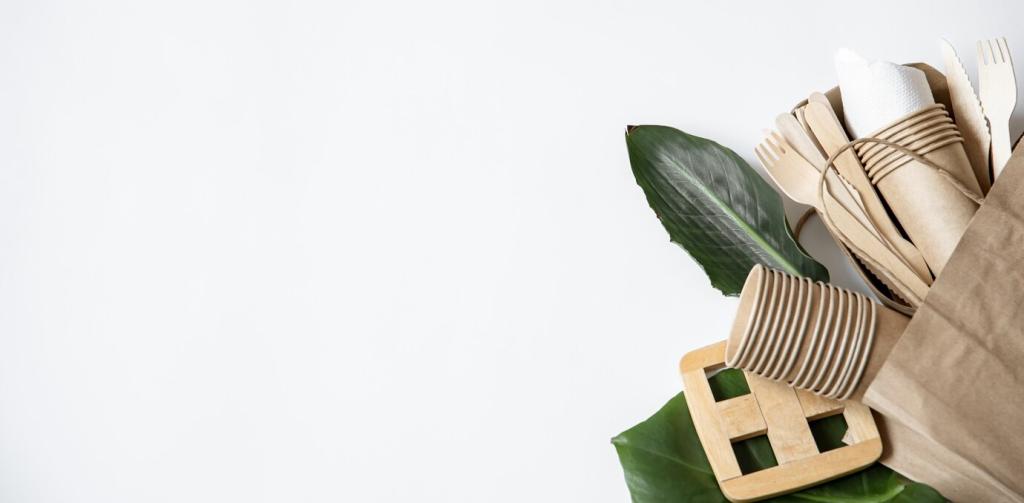
Cleaner Air, Fewer Irritants Indoors
Switching to plant-based cleaners reduces volatile organic compounds that can irritate airways, especially in small spaces. Many botanical formulas use gentle solvents and essential oils, ensuring freshness without heavy synthetic fragrances that linger in fabrics, curtains, and carpets for days.
Core Ingredients and How to Use Them
Vinegar and Citric Acid for Mineral Buildup
Acidic agents like distilled white vinegar and citric acid dissolve limescale on faucets, kettles, and showerheads. Let solutions sit to break bonds before wiping. Always test on delicate stone, and rinse thoroughly to avoid etching or lingering aromas in enclosed, unventilated spaces.
Baking Soda as Gentle Abrasive Power
Sodium bicarbonate lifts browned residue from pans, soap scum from tiles, and odors from refrigerators. Paired with a little water, it forms a targeted paste that scrubs without scratching. Mix with castile soap for a creamy cleanser, then rinse to reveal gleaming, refreshed surfaces.
Castile Soap and Saponified Oils
Castile soap, made from saponified olive or coconut oil, creates stable lather that loosens grime. Dilute for floors, counters, and handwashing delicate textiles. Avoid combining directly with vinegar, which can curdle soap; instead, rinse between steps for streak-free, residue-free sparkling results.
Room-by-Room Plant-Powered Playbook
Cut cooking film using diluted castile soap and a splash of alcohol from fermented plant sources. For baked-on residue, apply a baking soda paste and rest five minutes. Finish with a vinegar spritz on glass and steel, then buff dry for a bright, smudge-resistant, food-safe shine.
Pre-spray tiles and glass with warm vinegar or citric acid solution, allowing dwell time to dissolve mineral layers. Use baking soda on grout for targeted abrasion. Add tea tree or eucalyptus oil sparingly for freshness, ensuring good ventilation and mindful use around sensitive individuals.
Microfiber cloths paired with a few drops of botanical cleaner capture dust without aerosolized particles. For upholstery, spot-test a castile dilution. On sealed floors, use a minimal, no-rinse solution to prevent streaks. Share your floor type, and we’ll suggest a safe dilution ratio today.
DIY Recipes That Actually Perform
Combine 1 cup distilled water, 1 cup distilled white vinegar, and 1 teaspoon plant-derived alcohol. Optional: 5 drops lemon or lavender essential oil. Spray on counters, appliances, and glass; allow brief dwell time, then wipe. Always test painted surfaces and keep away from natural stone.
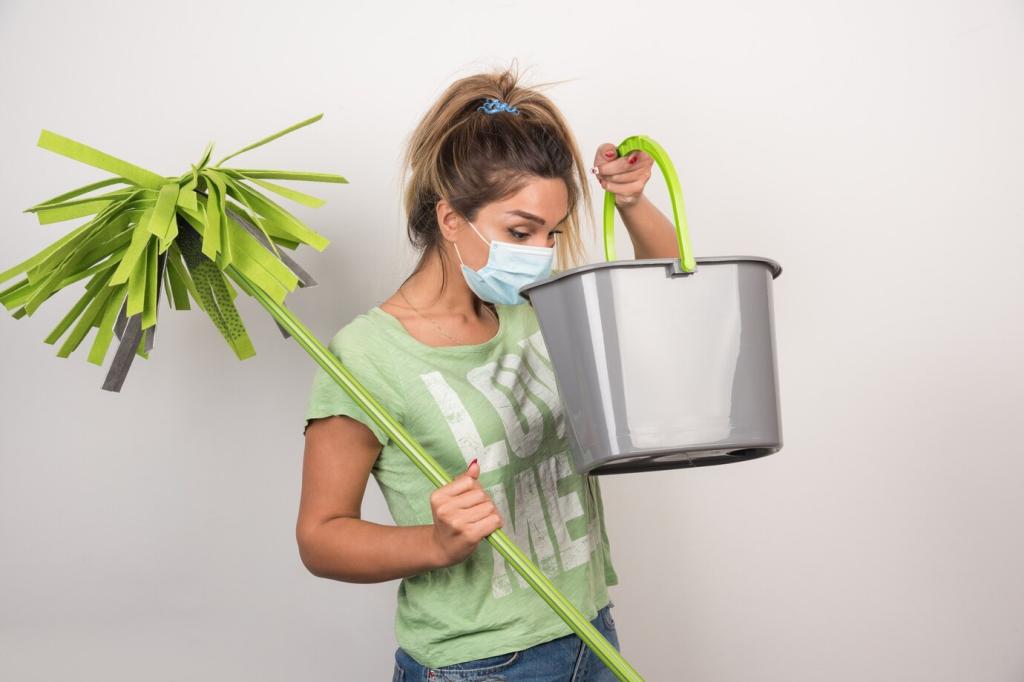
Essential Oils: Less Is More
Essential oils are potent. Use low percentages, avoid direct skin contact, and keep away from cats, birds, and sensitive individuals. Ventilate rooms after spraying. If in doubt, skip fragrance entirely; plant-based cleaners work perfectly well unscented, minimizing potential irritants and unnecessary exposures.
Labeling and Child-Safe Storage
Store mixtures in clearly labeled, opaque bottles with dates, and use childproof closures. Keep acids and bases separated. Never reuse food or beverage containers. Share your storage space constraints, and we’ll recommend stackable bottles, dilution markers, and color codes for fast, safe identification.
Shelf Life and Freshness Checks
Most water-based DIY cleaners last 2–4 weeks, especially without preservatives. Make small batches, and discard if odor, color, or texture changes. Alcohol-heavy sprays last longer. Tell us your climate, and we’ll suggest batch sizes and cool, dark storage to extend freshness without compromise.
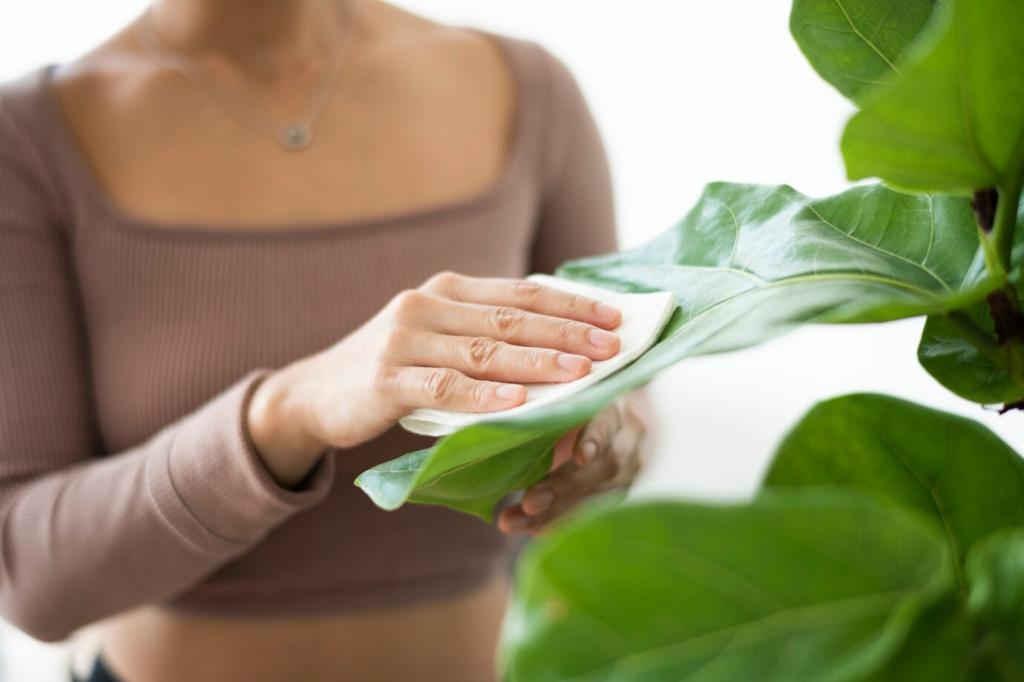
Sustainability and Savings
Refill, Reuse, and Reduce Packaging
Choose concentrates, bulk citric acid, and bar castile soap to minimize plastic. Refillable glass or sturdy PET bottles last years. Implement a returnable container system at home, and track how many single-use sprayers you eliminate each month to stay motivated and inspired by progress.
Cost Breakdown Versus Conventional
A few basics replace entire aisles: castile soap, vinegar, alcohol, baking soda, and citric acid. Per-use costs drop when you mix at home. Post your monthly spend, and we’ll calculate substitutions, showing how a compact kit handles kitchens, bathrooms, floors, and windows with ease.
Sourcing Ethically and Locally
Look for plant-based ingredients from reputable suppliers, fair-trade oils, and domestically produced vinegar to reduce transport emissions. Farmers’ markets often carry bulk staples. Comment with your region, and we’ll suggest local options that balance sustainability, quality, and reliable year-round availability.
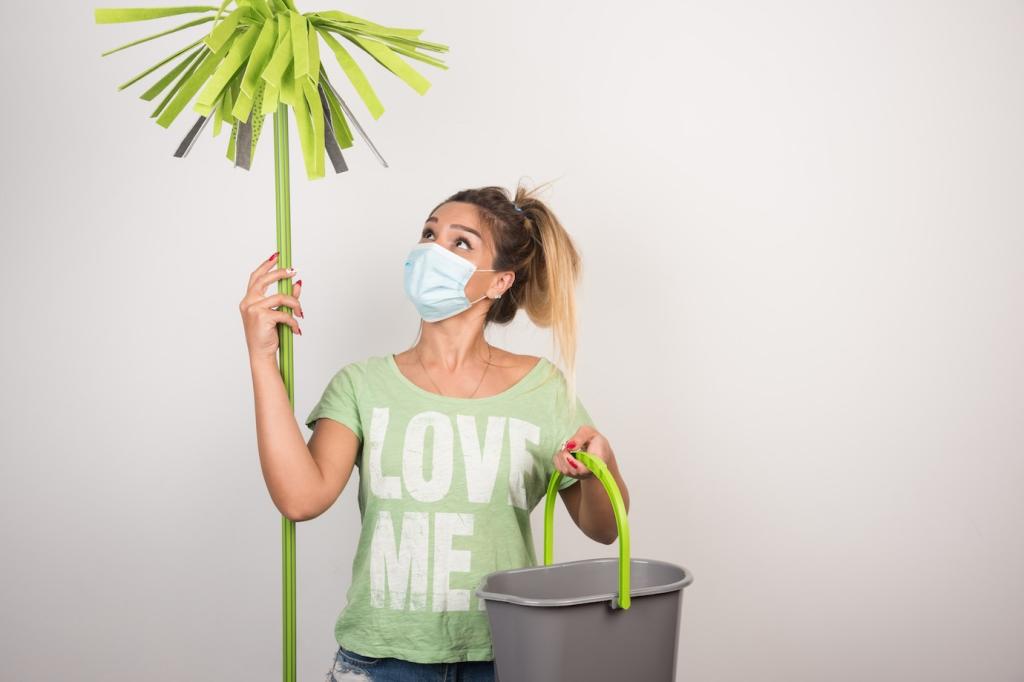
Stories from Real Homes
After ditching synthetic cleaners, a reader noticed evening coughs fading within two weeks. They swapped to alcohol-vinegar glass spray and castile floor cleaner, keeping windows cracked. Their advice: go slow, finish existing products, and track symptoms to celebrate meaningful, encouraging improvements.
Stories from Real Homes
Moving out, one renter removed oven grime using baking soda and castile paste, then polished stainless with alcohol. No noxious fumes, no headaches, and a grateful landlord. Share your move-out checklist, and we’ll suggest plant-based steps for spotless inspections without harsh chemicals or stress.
